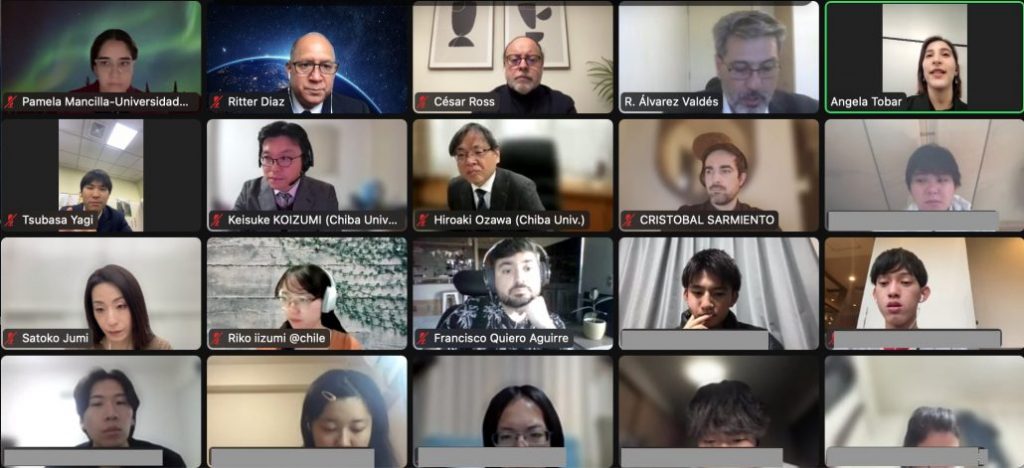Opening Ceremony of the first Short Online Program (SOP) Delivered by the University of Santiago, Chile, to Chiba University Students

On March 12, the University of Santiago, Chile, in collaboration with Chiba University, carried out the first short online program under the University Internationalization Program coordinated by the Japan Association for Promotion of Latin America and the Caribbean (JAPOLAC).
This three-week synchronous online program is designed to provide Chiba University students with an overview of Chile, covering topics such as the country’s rich copper, lithium, and iodine production, as well as insights into its thriving winery industry and an introduction of Chile’s salmon and forestry sectors. Additionally, the program includes a cultural exchange component aimed at fostering interaction between Japanese and Chilean university students.
The opening ceremony counted on the presence of distinguished guests, including Mr. Tsubasa Yagi, Chief of the Political Section of the Embassy of Japan in Chile; Honorable Ms. Angela Tobar, Second Secretary of the Asia Pacific Division of the Ministry of Foreign Affairs of Chile; Dr. Hiroaki Ozawa, Vice-President for Education at Chiba University; and Dr. Patricia Pallavicini, Vice-Rector for Community Engagement at the University of Santiago, Chile.
In his welcoming remarks, Dr. Ritter Díaz, Representative Director of JAPOLAC, expressed heartfelt appreciation to both universities for their collaborative efforts in organizing this short online program. He emphasized its significance in enriching Japanese students’ understanding of Latin America and the Caribbean (LAC). Dr. Diaz underscored that this initiative marks the beginning of closer academic cooperation between Chiba University and the University of Santiago, Chile.
JAPOLAC’s short online programs aim to provide Japanese university students with practical knowledge about Latin American and Caribbean countries, encouraging them to explore opportunities for further study and travel to the LAC region. Furthermore, these programs facilitate international communication in English, thereby equipping students from both Japan and Chile with the skills and confidence needed to navigate the global landscape in this digital era.
